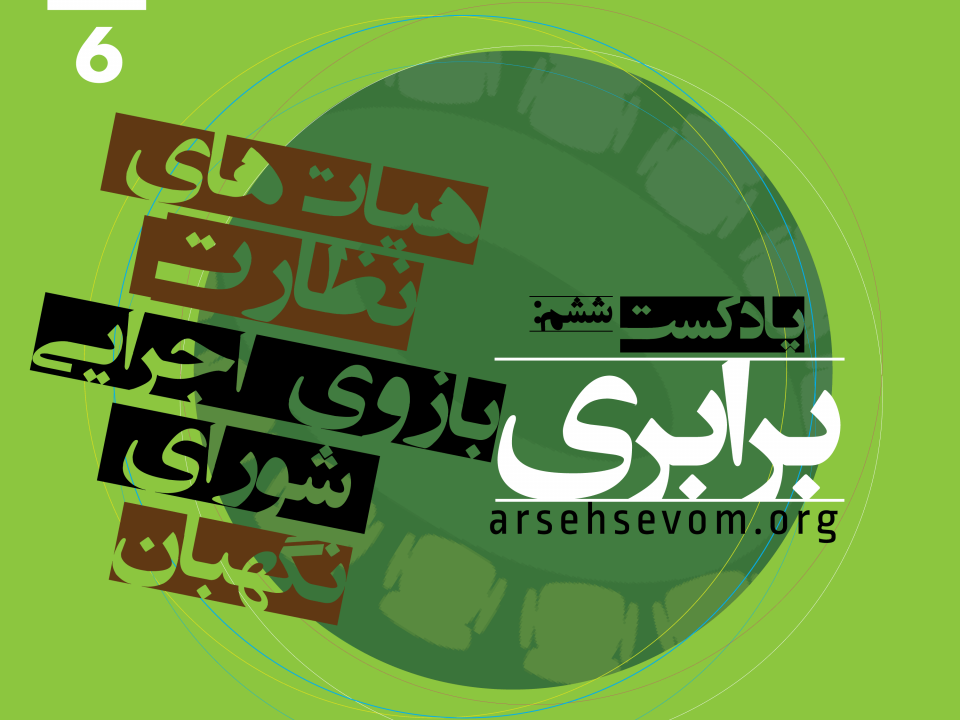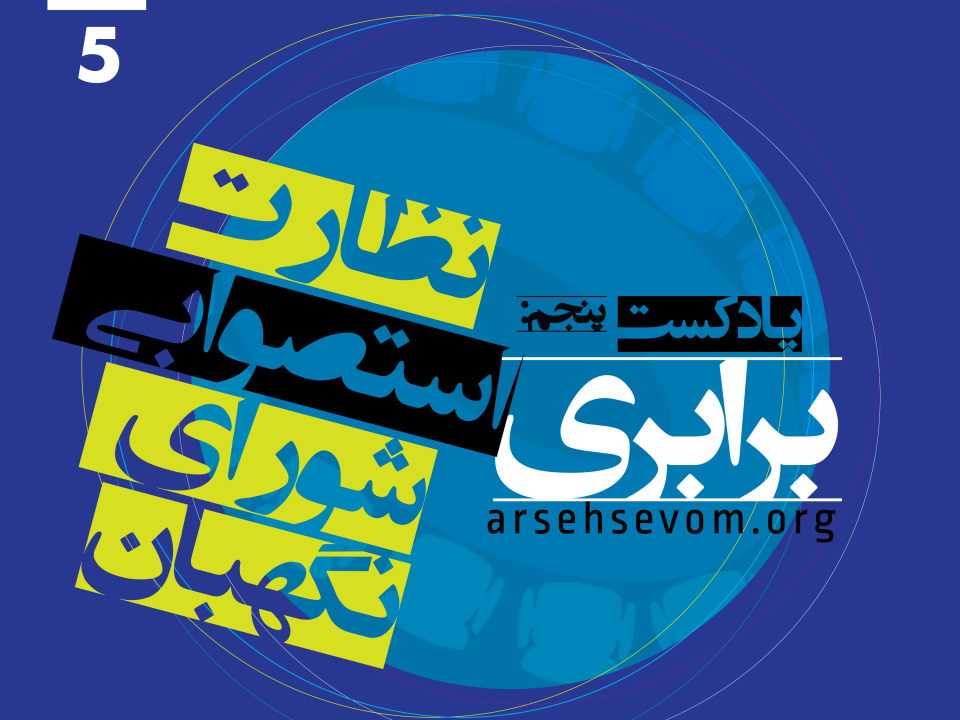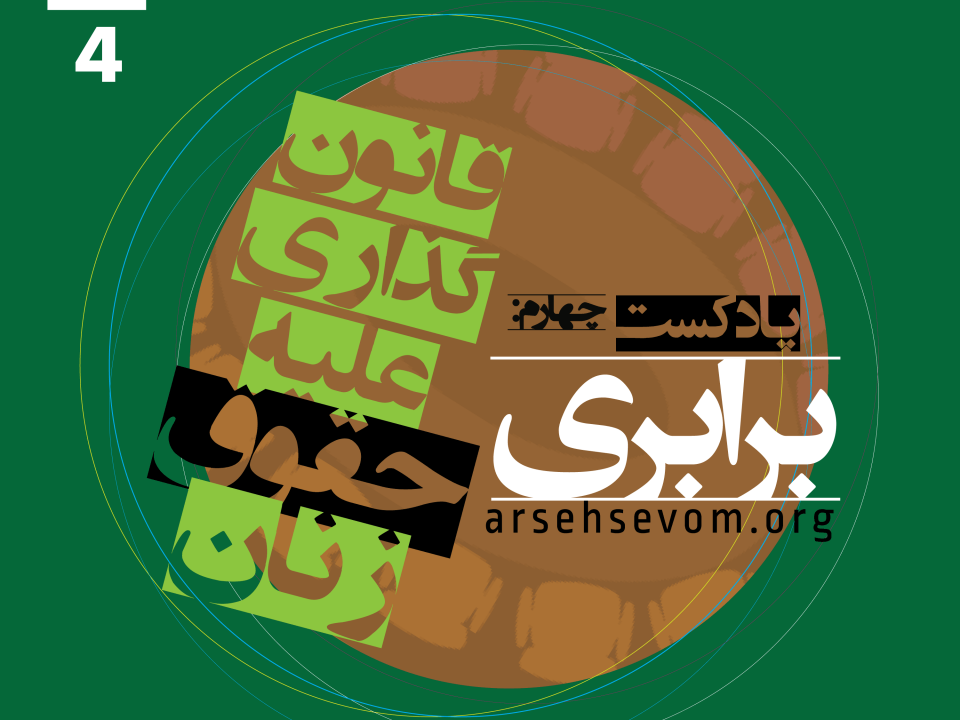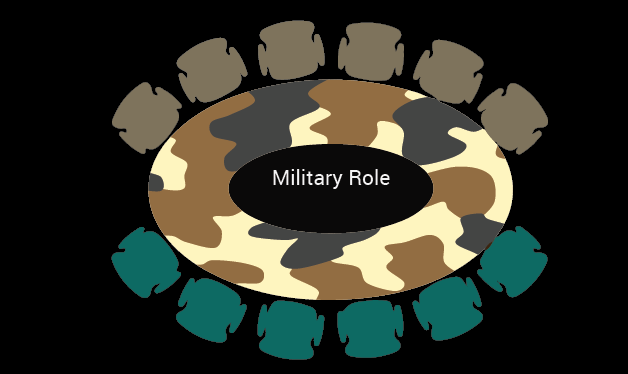
Role of Military and Security Organizations on Election Monitoring Boards
February 24, 2020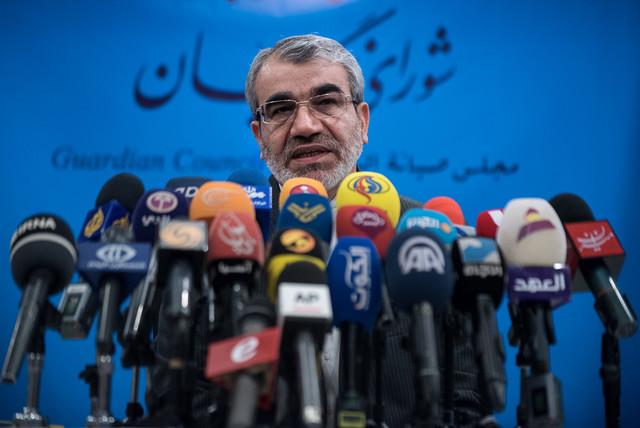
Abbas-Ali Kadkhodaei, Lawyer
March 12, 2020The Islamic Republic of Iran often boasts that it is a democracy. Its proof is its elected bodies: parliament, city councils, and the president, for instance. The role of its unelected bodies is rarely a topic of public discussion. There are many red lines when it comes to the discussion of the Office of the Supreme Leader and the role it has in ruling the country.
There is a kind of recycle and reuse policy when it comes to members of unelected bodies. They serve on multiple committees and multiple councils. Their influence extends well beyond any one administration. This is why Arseh Sevom decided to include the profiles of the 12 members of the Guardian Council as one of the activities in this project (view in Persian).
The Guardian Council has 12 members serving six-year terms. Six of the twelve are appointed by the Supreme Leader. The other six are selected by members of parliament from a pool of candidates determined by the head of the judiciary. Since the head of the judiciary is appointed by the Supreme Leader, this further enhances his control over the political process in Iran.
Over the past 40 years, the Guardian Council has been leveraged by the Supreme Leader to wield political power, keep opposition at bay, and to shape future leadership.
In addition, it is the Guardian Council that determines who can and cannot run for national office. As recently as the week of January 12th, 2020, more candidates were disqualified than in the previous 40 years. This includes several sitting members of parliament.
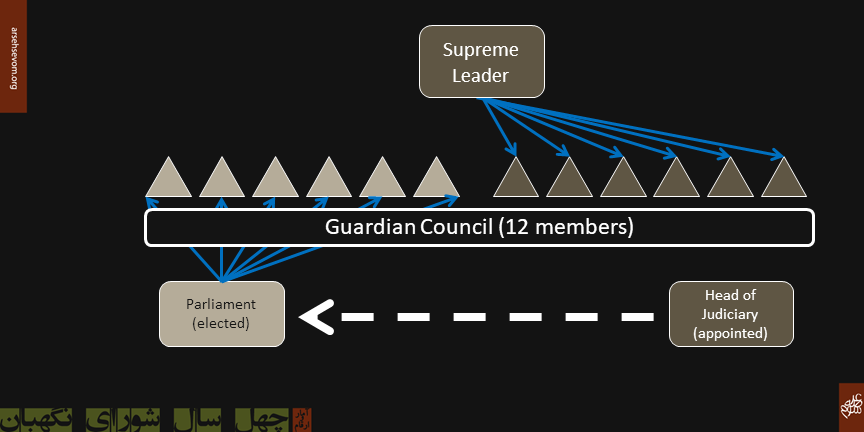
Image shows the make-up of the Guardian Council: 6 members are selected by the Supreme Leader and 6 by the parliament
Constitutional Responsibilities of the Guardian Council
The tasks of this council are divided into three parts:
- Articles 93 and 94 of the Constitution of Iran give the Guardian Council the final approval of all laws passed by parliament.
- Article 98 gives the Guardian Council the responsibility of interpreting the constitution and control over the constitutional court.
- Article 99 of the Constitution of the Islamic Republic of Iran gives the Guardian Council power to oversee national elections, determining who can run.
In addition, the GC announces election results.
Overview of Guardian Council Responsibilities
Iran’s Guardian Council uses its power to interpret the law in a way that favors non-democratic power and undermines international conventions:
- Interprets constitutional law and commitments in a way that disadvantages opposition and marginalizes vulnerable populations
- Rejects international human rights Conventions such as the Prohibition of Torture and the Elimination of Discrimination Against Women
- Rejects international conventions such as Money Laundry and Weapons Smuggling
- Partial interpretations of Islamic law leading to the concentration of power in the Office of the Supreme Leader (Guardianship of Islamic Jurist: ولایت فقیه)
The Guardian Council uses its power to prevent democratic development by supporting organizations that limit free expression and opposition:
- Supports Iran Revolutionary Guard Corps (IRGC) financially and politically
- Supports paramilitary forces
The right to information needed for informed democratic choices is systematically blocked by the Guardian Council:
- Prevents reform of the Press Law, thus blocking the freedom of the press
- Lopsided interpretations of religious law strengthening Islamic Fundamentalists
The Guardian Council exerts undue influence over democratic processes:
- Controls who can and cannot run for parliament, Assembly of Experts, and the presidency
- Oversees a monitoring board that investigates the private lives of current and potential candidates for elected office
- Controls ballot boxes and polling stations
- Interprets constitution in a way that prevents women from running for president
Timeline of Key Decisions
1981
The Introduction of the first Guardian Council jurists
Ayatollah Khomeini presented Lotfollah Safi Golpayegani, Ahmad Jannati, Yousuf Saneie, Gholam Reza Rezvani, Abdul Rahim Rabbani Shirazi and Mohammad Reza Mahdavi Kani as the jurists of the first Guardian Council
1992
Article 99 of the Constitution of the Islamic Republic of Iran gives the Guardian Council power to oversee national elections, determining who can run
2009
Approval of the 2009 presidential election
In the midst of mass protests of the results of the tenth Presidential Election, the secretary of the Guardian Council wrote a letter to Minister of the Interior confirming the accuracy of the announced results favoring incumbent Mahmoud Ahmadinejad
2019
Refuses to allow membership in Financial Action Task Force and Countering Financing of Terrorism (FATF-CFT)
The Guardian Council vetoed two bills that would make Iran compliant with international conventions opposing money laundering and financing terrorism and membership in the Financial Action Task Force
2020
Disqualified nearly all independent and reformist candidates from running for parliament, including 90 sitting members of parliament
Read the full report: The Guardian Council Expands Power (pdf)



